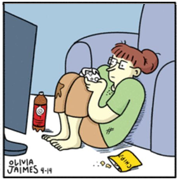|
Test scores and measures of student learning have continued to fall since the pandemic. The latest data shows a nearly 35-year low that has erased all progress for the average American student on math testing since 1990. Reading is down to 2004-levels. Even before the pandemic, U.S. student achievement in math was progressing very slowly - but it was still progressing - and this collapse combined with 10+ years of slow progress has significantly damaged the average American student's math skills relative to other major countries. Performance is down among every racial, geographic, and income group, but performance is disproportionately down amongst low-income students, black students, and native American students. Interestingly, Hispanic students - who had previously been among the groups most vulnerable to learning loss - seem to have only done a little worse than average. The amount of kids who say they never read outside of class is up nearly 50% from where it was 10 years years ago. The amount of 8th graders taking advanced math classes is down by nearly 1/3 from 10 years ago (34% to 24%). https://twitter.com/nytimes/status/1671490506100994049 quote:The math and reading performance of 13-year-olds in the United States has hit the lowest level in decades, according to test scores released today from the National Assessment of Educational Progress, the gold-standard federal exam.
|
|
|
|

|
| # ? May 25, 2024 08:45 |
|
This has been discussed in other threads but one of the reason for the reading drop was because schools adopted this really lovely way of how to teach kids how to read that did not work. https://www.npr.org/2019/01/02/677722959/why-millions-of-kids-cant-read-and-what-better-teaching-can-do-about-it Edit: Note this is from 2019 before the pandemic.
|
|
|
|
Alterian posted:This has been discussed in other threads but one of the reason for the reading drop was because schools adopted this really lovely way of how to teach kids how to read that did not work. That article is pretty wild. quote:Harper attended a professional-development day at one of the district's lowest-performing elementary schools. The teachers were talking about how students should attack words in a story. When a child came to a word she didn't know, the teacher would tell her to look at the picture and guess. quote:This advice to a beginning reader is based on an influential theory about reading that basically says people use things like context and visual clues to read words. The theory assumes learning to read is a natural process and that with enough exposure to text, kids will figure out how words work. That seems like it could have definitely played a role in the loss, and since it happened right before the pandemic it would be difficult to figure out how much it was responsible for. The math scores were even worse than the reading scores, so there is something there beyond even the impact of new teaching styles. Maybe math is just especially vulnerable to compounding problems with learning loss?
|
|
|
|
Wow that’s an awful way to teach That’s just going to make things worse for them in the future
|
|
|
|
Alterian posted:This has been discussed in other threads but one of the reason for the reading drop was because schools adopted this really lovely way of how to teach kids how to read that did not work. Ugh. My kids just finished K and 1st grade and they used this stupid method. Thank god we did a ton of work with them before sending them to school and have continued to do a ton of work on reading because I can see it isn’t working at all.
|
|
|
|
Alterian posted:This has been discussed in other threads but one of the reason for the reading drop was because schools adopted this really lovely way of how to teach kids how to read that did not work. My mother-in-law taught 1st grade through the pandemic and the stories of what schools expected kids to do vs what they actually have the capacity to do at that age was absolutely insane. There has been an abject and utter failure in how we teach our children going back decades but the pandemic and the misunderstood use of remote learning for a wide swath of the country is going to absolutely destroy a generation that was already starting from behind due to what their grandparents are doing to the world at large. Remote learning as a tool can be used and used well but the lack of general planning and execution makes results like what's been posted above normal given how shoddy testing and follow through in this country is to begin with.
|
|
|
|
Remote learning is loving hard for me as a grown-rear end adult professional to be successful in. Most kids without extremely engaged parents able to effectively serve as teachers didn't stand a chance.
|
|
|
|
Fork of Unknown Origins posted:Ugh. My kids just finished K and 1st grade and they used this stupid method. Thank god we did a ton of work with them before sending them to school and have continued to do a ton of work on reading because I can see it isn’t working at all. Same, I can only assume. We have our oldest read to us every night and it's been a challenge to deprogram him from guessing an unfamiliar word based on the pictures on the page. Just literally guessing anything he sees regardless of the actual letters in the word. Funnily (and unsurprisingly) enough, once he figured out to actually look at the word itself, he started guessing less--really, less guessing and more reasoning it out--and got less frustrated from reading. Liquid Communism posted:Remote learning is loving hard for me as a grown-rear end adult professional to be successful in. Most kids without extremely engaged parents able to effectively serve as teachers didn't stand a chance. It's this, even with traditional in-person learning. Children spend way more time with their parent(s) or guardian(s) usually than teachers, if parents aren't doing anything to continue learning at home then their kids ain't got no shot. And of course, if your parent(s) are working three jobs just to pay the rent and you're a latchkey kid, you're absolutely SOL. Great example of how the problems in education go way beyond funding, pedagogy, and teacher accreditation. If you want to fix education you need to fix the socioeconomic inequities that plague our society.
|
|
|
|
I think it's been brought up before? But that's the premise behind the "Sold a Story" podcast which I def recommend listening to. *Thankfully* my kid's school didn't use that method and she is a superior ranking reader. Her math skills however are right down the middle average. Need to work on those during the break.
|
|
|
|
The way many schools have been teaching math is absolutely horrible as well. The problems, in my experience, is three fold (plus the serious and what will be long term and ongoing effects of the COVID home learning stint) - teachers are being taught like poo poo (I went to college for teaching and the classes were some of the most idiotic wastes of time I ever encountered, very little in the way of useful fact based information or actual skill development) ad passing that on to their students, institutional support for children and teachers both is continuing to be ignored, and anyone who is actually good at teaching is basically being told to go gently caress themselves and get out of the industry if they have a shred of self respect. We've made lots of ground in terms of understanding what effective pedagogy looks like, and have apparently decided that we absolutely do not, under any circumstances, want that poo poo in our schools. I'm honestly surprised students are still learning as well as they are. GlyphGryph fucked around with this message at 14:50 on Jun 21, 2023 |
|
|
|
My oldest is just finishing up 4th grade. He wasn't required to memorize times tables. Despite that, he's doing great in math. We are going to make him memorize times tables over the summer because we could see him struggling when he had to learn long division because of it. Reading has been a struggle for him because he was taught that way. He is also (recently diagnosed) autistic and has ADHD. That way of teaching for a neurodivergent kid absolutely doesn't work. Wanting to play video games and having to read menus and his insistence on keeping captions on everything he watches on tv has probably helped him more than some of the school instruction he's gotten. They also don't have spelling tests. He's clever like a weasel so he figured out pretty quickly during remote learning during covid which started for him in 1st grade how to get around typing out words.
|
|
|
|
We thank god missed out on the remote learning nonsense. My kids missed a year of pre-k which was a bummer but we worked through a curriculum with each of them and they were both further along than their classmates when they started. I haven’t noticed any issues with how they teach math yet. But again, K and 1st grade. They both seem to be where they should be though and we’ve worked way less on math than we have reading at home. But math also comes very easily to me and they might have that too. Alterian posted:
This is great. At the end of the day a kid having a reason they want to learn something makes it stick 100x better than just powering through it. I learned to read on Sonic comics.
|
|
|
|
The absolute best thing you can do for your kids reading ability is read to them. Every night. Doesn’t matter if they’re three months or three years. Let them look over your shoulder or sit on your lap, do funny voices, trace your finger along the line as you read, let them ‘read’ the pictures, ask them questions. Read the same book over and over if that’s what they like (I think I have still have ‘Goodnight Moon’ memorized and my kids are in high school). Utilize your local library and let your kid pick out whatever they like (there are so many amazing kids books out there now, well beyond Harry Potter and Rick Riordan). And even when they start reading for themselves, read to them. Read books that are just above their level and explain what the big words mean, or let them guess from the context. And I always used to limit them to a chapter a night; if we stopped on a cliffhanger oh well, that’s for tomorrow night. They’d invariably sneak the book and read ahead to find out what happened next. Once that started happening regularly (about 4th grade for us) I left off reading to them every night; they’d gotten bit by the reading bug. But they’ll still occasionally ask me to read to them, if they’ve had a bad day or don’t feel well or are just feeling nostalgic. And they still read, though not nearly as much once they got phones. School librarians do gods own work at getting the right book to the right kid as well. I can think of several lgbt kids whose lives were likely saved by the right book at the right time.
|
|
|
|
Leon Trotsky 2012 posted:That article is pretty wild. I have a lot of issues with that article (for example, suggesting that a five-year-old would be more correct to interpret "horse" as "house" rather than "pony"), but in the context of this discussion, the most important part is that you're dead wrong in interpreting it as something that "happened right before the pandemic". The decline of phonics in favor of whole language learning is at least half a century old, and the past decade or two has been characterized by a move back toward phonics, as the so-called "Reading Wars" have raged throughout academia. So whatever you think of this article, the stuff described in it absolutely, definitely does not explain declines in academic performance since 2019. Even if you don't think remote learning and social isolation from the pandemic are enough to explain the decline, there's been way bigger changes to kids' lives in the past decade or two than teacher training and curriculum shifts. I'd place a fair bit of suspicion on smartphones and the various things they've put in teens' pockets, such as social media sites and video content farms.
|
|
|
|
Internet access and the ubiquitous use of devices are definitely a pox on education holy poo poo. (And sleep habits and self-esteem and attention spans and self control and empathy and…)
|
|
|
|
Alterian posted:This has been discussed in other threads but one of the reason for the reading drop was because schools adopted this really lovely way of how to teach kids how to read that did not work. This was a really interesting article. I had no idea that they started changing how reading was being taught. I guess phonics is no longer a thing? I can't help but wonder, though, what is it that happened that caused a major change in how teachers taught math and reading? Like, genuinely curious. Who saw what was being taught and decided that it was all wrong? I graduated HS in 2005 so I was taught the "old" way of reading and math. Phonics and long division and all that. And I get it that there are some students that will take to learning that method more easily, and others that would struggle to understand it, and would need extra help. But surely that can't be the entire reasoning between changing to sight reading, and simply "grasping the ideas" of what text is trying to convey, and adopting common core math? Anecdote: I used to help my niece with math when she was in highschool, and she would show me the problems she was given, and I would ask her to start solving it and I would guide her if she got stuck and correct her where she stumbled. A few times, she would start solving a problem and I would stop her just to ask what she was doing, not recognizing the method. She would explain it, and every time it would seem like nonsense to me. And more than once, after I showed her how I was taught to solve those problems, she would comment on how my way was much easier and intuitive.
|
|
|
|
Velocity Raptor posted:This was a really interesting article. I had no idea that they started changing how reading was being taught. I guess phonics is no longer a thing? Here's a good NYT overview on the situation. The tl;dr version is: Some studies showed that kids would read more on their own when taught that way and that phonics was breaking down reading into a mechanical process that didn't foster a love of reading in students. The best way to improve at reading is to practice, so a program that resulted in kids reading more on their own would lead to better results than teaching phonics. It didn't pan out that way, though. And the philosophy was based on a study that turned out to be somewhat dubious. quote:Sounding Out a Better Way to Teach Reading https://www.nytimes.com/2022/10/06/...they%20started.
|
|
|
|
I learned to read and read a bunch at like 4-5, purely because a kid who was horribly mean to me was a good reader and liked to throw it in peoples faces. What I'm saying here is we should introduce spite/rivalry based learning.
|
|
|
|
Velocity Raptor posted:This was a really interesting article. I had no idea that they started changing how reading was being taught. I guess phonics is no longer a thing? There's a cycle to how this works.
|
|
|
|
socialsecurity posted:I learned to read and read a bunch at like 4-5, purely because a kid who was horribly mean to me was a good reader and liked to throw it in peoples faces. What I'm saying here is we should introduce spite/rivalry based learning. Gaming, only it is for literacy? This might be monetized, call Elon RIGHT NOW Oh wait, poo poo, they tried that with weird learning math games and I don't think those made any money (not that that'd stop Elon) Maybe the Lemmings games? They taught a kid puzzle solving, sort of
|
|
|
|
Leon Trotsky 2012 posted:Here's a good NYT overview on the situation. Thanks for this. I find analyses like this fascinating. I used to love reading as a kid, but honestly what killed it for me was mandatory reading in middle- and high-school, complete with summer reading assignments where I had to read 5 books from a list of nothing that interested me. Anytime I found a book that I wanted to read, I usually couldn't because I was required to read something else like "Johnny Tremain" and usually didn't have time to read what I wanted, or simply didn't have the desire after forcing my way through a number of chapters of a boring character study.
|
|
|
|
There's a good thread/OP in CSPAM about K-12 education: https://forums.somethingawful.com/showthread.php?threadid=4029992 GlyphGryph posted:The way many schools have been teaching math is absolutely horrible as well.
|
|
|
|
A problem with math education is that the underlying logic of what you’re doing and why the school’s way and the parent/other adult who’s helping’s way can be different and both work isn’t taught or understood until many years into one’s education. Kids are probably not even capable of grasping the underlying logic of what’s going on for many years.
|
|
|
|
Rappaport posted:Gaming, only it is for literacy? This might be monetized, call Elon RIGHT NOW There are a ton of “edutainment” games now, especially on tablets and phones. I actually thought the Hooked on Phonics app did a good job. It was less game and more “hooked on phonics with mini games.” But I’ve also seen a ton of lovely ones.
|
|
|
|
Rappaport posted:Gaming, only it is for literacy? This might be monetized, call Elon RIGHT NOW 
Oracle fucked around with this message at 16:04 on Jun 21, 2023 |
|
|
|
cat botherer posted:There's a good thread/OP in CSPAM about K-12 education: If it's like literally any aspect of government policy and procurement, what gets chosen and rolled out is what gives the buddies of politicians and the employers of the most lobbyists the most money, and none of it goes to actually helping teachers learn to teach better. And also doesn't help with the pandemic it's become more and more clear that schools are first and foremost considered warehouses for children while their parents work.
|
|
|
|
I AM GRANDO posted:A problem with math education is that the underlying logic of what you’re doing and why the school’s way and the parent/other adult who’s helping’s way can be different and both work isn’t taught or understood until many years into one’s education. Kids are probably not even capable of grasping the underlying logic of what’s going on for many years.
|
|
|
|
Velocity Raptor posted:Thanks for this. I find analyses like this fascinating. Reading in class was always torture for me, so god damned slow I'd always be a few chapters ahead when it came around to my turn. Between that and some writing styles I'd go a year or more without picking up a book voluntarily. Making reading more enjoyable and accessible would probably help a lot. So would a parent willing to drive you 20 minutes to the closest library probably would too. How's the guessing method supposed to work when your books don't have pictures and you come across new words?
|
|
|
|
Ghost Leviathan posted:And also doesn't help with the pandemic it's become more and more clear that schools are first and foremost considered warehouses for children while their parents work. It'd be great if we had free government-provided daycare & before/after school care but we don't, so I'm not sure what you'd have proposed for non-PMC parents who had to leave their homes for work in order to provide their families with food & shelter during the pandemic. Leave them alone at home? In my state, that's against the law unless the children are 12+. I grew up when most women stayed home to take care of their kids but that's no longer economically nor socially feasible for most families. As it was, the pandemic led a lot of women with children to drop out of the workforce; do you think that was a net positive? I get a bit rankled when I see working parents who needed childcare summarily dismissed as "warehousing their children" in order to provide for them, but if you meant something else, please do elaborate.
|
|
|
|
Willa Rogers posted:It'd be great if we had free government-provided daycare & before/after school care but we don't, so I'm not sure what you'd have proposed for non-PMC parents who had to work to provide their families with food & shelter during the pandemic. Leave them alone at home? In my state, that's against the law unless the children are 12+.
|
|
|
|
SpeedFreek posted:The better way to do that is read 5 books, they must be at least x pages long. Then you get free movie tickets or something like that. This still exists: https://www.bookitprogram.com/ Books into Personal Pan Pizzas, the greatest transactional reading program imaginable.
|
|
|
|
Willa Rogers posted:It'd be great if we had free government-provided daycare & before/after school care but we don't, so I'm not sure what you'd have proposed for non-PMC parents who had to leave their homes for work in order to provide their families with food & shelter during the pandemic. Leave them alone at home? In my state, that's against the law unless the children are 12+. The simple act of using school as surrogate childcare so parents can work is not wrong. Parents viewing and treating school as nothing more than childcare--which, in my anecdotal experience, is a good number of them--is what's wrong. Parents can need childcare and be anti-intellectual about it, too.
|
|
|
|
Not really that surprising, but Arkansas continues the trend of every single law banning gender-affirming care being struck down in federal court. Every single state bill banning gender-affirming care that had made it to federal court has been overturned or injuncted so far. Montana, Texas, Idaho, and South Dakota are the only states that still have bans on gender-affirming care making their way through the court system. They haven't had an injunction to block them because they haven't gone into effect yet. If the case in Texas is not resolved by September 1st, 2023, then they can ask for an injunction until the case is resolved. https://twitter.com/cnnbrk/status/1671281339327303681 quote:Federal judge strikes down Arkansas’ ban on gender-affirming treatment for trans youth
|
|
|
|
cat botherer posted:I think that's a bit uncharitable of a read. Of course parents want their children to receive a good education, but the warehousing aspect is what is most important to capital. Yes, it's this. What the parents think is irrelevant to those making the decisions.
|
|
|
|
I learned arithmetic from my VTech Socrates
|
|
|
|
Oracle posted:They gamified literacy and math like fifty years ago dude. What a wonderful insight this was. Do you think you might have a follow-up, which I am sure you do, being a doctor in your field?
|
|
|
|
cat botherer posted:I think that's a bit uncharitable of a read. Of course parents want their children to receive a good education, but the warehousing aspect is what is most important to capital. Using the word "warehousing" was what rankled me, given the lack of government-provided child care beyond the school day, imo. I saw a lot of judgment & scorn toward working parents, rather than toward capital, when parents experienced genuine distress at schools staying closed, and this initially struck me as more piling on. But rereading GL's comment I see they weren't blaming the parents for the warehousing so I apologize for extrapolating that they were. Willa Rogers fucked around with this message at 16:37 on Jun 21, 2023 |
|
|
|
Remote was a disaster. It was much worse if one earnestly tried to do the program. On top of that all the things outside school imploded during the pandemic all the extracurriculars went away. Following remote cost of living exploded. Schools are now often without adequate staffing. It was much much worse if your child was special needs. Bunch of west coast districts had civil rights violations during the pandemic. It’s not much better now. Our district went from having an OT per school to a single one for six schools. They’re outright ignoring disabilities that affect academics because of the staffing levels. They have to use the time they have to deal with the kids that have acute emotional problems because of the pandemic. The administration and the teachers are fighting about it because this pushes all of the issues into the teachers, who are not given the flexibility to deal with it because they have to rigidly stick to garbage purchased curricula.
|
|
|
|
Bar Ran Dun posted:Remote was a disaster. It was much worse if one earnestly tried to do the program. On top of that all the things outside school imploded during the pandemic all the extracurriculars went away. Following remote cost of living exploded. Schools are now often without adequate staffing. Yeah; a lot of schools (as well as state governments & municipalities) pared back operations & never restored them, nor do they intend to. Entire government offices & services are never coming back, and many government workers are still WFH. But I thought schools, in particular, were provided with supplemental funding under Biden to help stabilize them. I guess if the monies aren't earmarked or otherwise specifically allocated then they go into general funding for the schools and there's no accountability. Not to mention that so many teachers have left the profession there are probably shortages for specifics like special ed.
|
|
|
|

|
| # ? May 25, 2024 08:45 |
|
I'd be shocked if anything less than a vast majority of pandemic funding was flat out stolen. The system doesn't even know how to help people anymore even if it wanted to.
|
|
|































